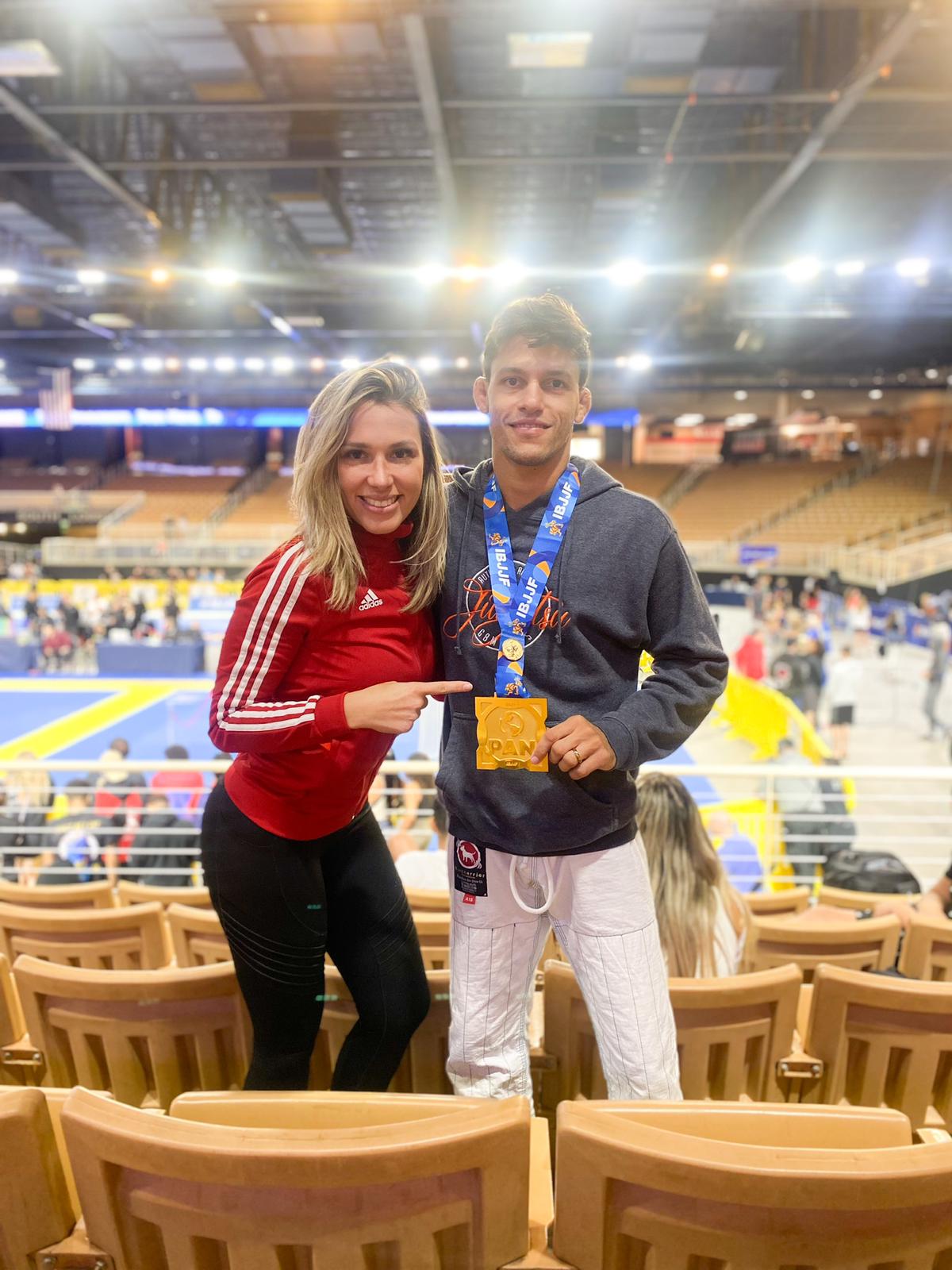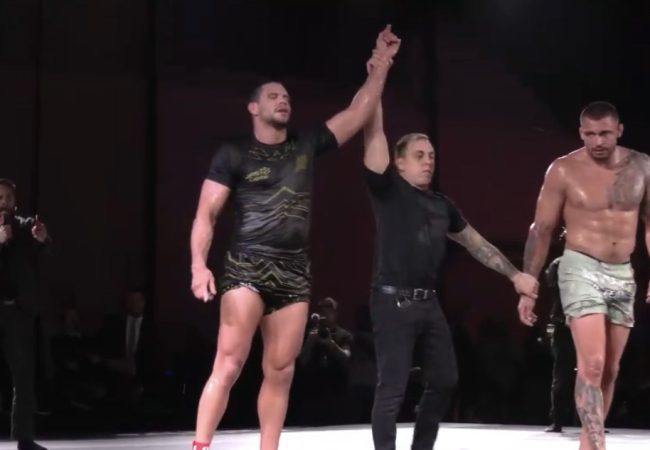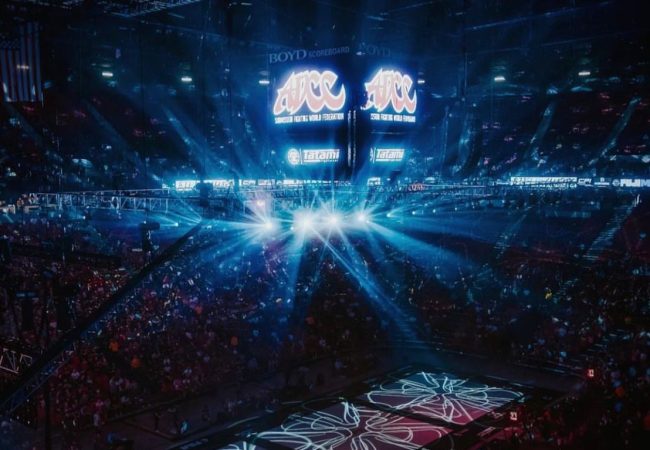
Nathalia and Livio Ribeiro. Photo: Personal Archive
The type of work done by Nathalia Chantre, 31, is a key part of the process of professionalization of BJJ as a sport. Playing a fundamental role in the performance of a number of elite athletes, this nutritionist is responsible for building a nutrition plan and enabling fighters to go into their matches healthy, living up to their full potential.
If in previous eras of the sport, it was possible to see athletes cutting weight in wrong ways and consuming fatty foods and sodas, nowadays this sort of behavior has to be kept to a minimum. The professionalization of BJJ has arrived in all spheres, from prize money to the care athletes have for their performance.
A nutritionist certified by the International Sports Sciences Association, Nathalia has monitored more than 300 athletes across more than five years in the field. In her opinion, a high-performance athlete who takes meticulous care of the details of their nutrition tends to come out on top.
“A time comes when the athlete’s key has to turn, so to speak, and they understand that in order to stay at a high level these days, it’s necessary to have more than good training; they need to be more than just talented,” said Nathalia, who’s also a BJJ student, in a recent interview. “It’s important to surround yourself with a multidisciplinary team that’s going to put you at your 100% to perform with excellence.”
She added: “One of the great differentials of my work with athletes consists of investing time with each of them. I treat athletes individually to understand their goals in a thorough way, their training, possible flaws, difficulties, and to not spare any efforts to develop a nutrition plan. I want the athlete to have adherence, for the plan to be compatible with their reality, making it easier to conquer the desired goal. That’s why I say that I don’t do consultations; I do nutritional monitoring with athletes and practitioners of BJJ. Our contact is very close; I make adjustments daily, if necessary, in the pre-competition phase.”
At this year’s IBJJF Pan, one of the biggest events of the calendar, Nathalia had multiple of her athletes come out victorious, not the least of which was Lívio Ribeiro, the roosterweight champion. The nutritionist went into some detail on her work with him.
“Lívio speaks openly of the crazy stuff he used to do to hit the weight before he had nutritional monitoring,” she said. “He, for example, used to cut water in the week that precedes a fight. Additionally, he would cut foods rich in carbs and use laxative drugs. It’s unbelievable how someone can train and fight in those conditions, completely dehydrated and without glycogen reserves. Certainly, he would sleep poorly, and his immunity was extremely low. When I became aware of this situation in March, the first thing was to get the house in order and adjust the basic: improve intestinal health, increase water intake and improve sleep quality.”
“He understood that he’s not supposed to starve to hit the weight, he doesn’t need to dehydrate, and he has no reason to cut foods with sources of carbs,” Nathalia continued. “So I included in his diet: rice, cuscuz, pasta, potatoes, various fruits, oatmeal, tapioca, beans and many other foods rich in micro- and macronutrients. I also used some supplements such as: beta alanine, probiotic, vitamin D3, magnesium, omega 3 and creatine. By the way, creatine does no harm when it comes to cutting weight. Quite the opposite: it’s an extremely safe supplement; it improves tolerance to straining, muscle recovery, on top of improving adaptive response to the training.”
In previous tournaments, Lívio had chosen not to eat before the first round, because his main opponent was the scale. This time, in 2021, everything has changed, and Lívio had the best performance to date in his early days as a black-belt.
“I followed Lívio’s training up-close, and his evolution was visible — especially in the final stage of the training, close to the competition, where usually he already felt extremely saturated, stressed and fatigued,” said the nutritionist. “I was very excited to see him in the competitions. It was going to be the first time he would eat on fight day! I was sure his performance was going to be special, and it was! He knew he was able to be explosive from the start until the end of the match; he knew he had energy reserves and was well trained, because he had the physical preparation provided by Itallo Vilardo and the training at Ares academy in Modesto, led by Prof. Samir Chantre.” She subjoined: “Those who think nutritional monitoring makes no difference certainly have never had the opportunity to be followed by a good nutritionist.”
Nathalia is a Health Coach with Integrative Nutrition (IIN) and is currently getting a postgraduate degree in nutrition, metabolism and physiology in sports.





